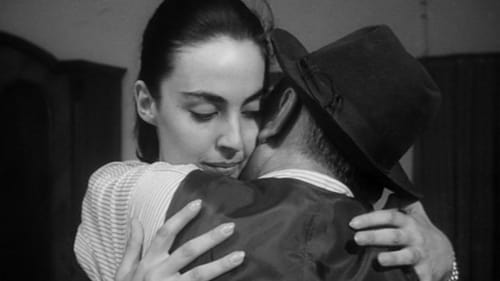Dimos Theos
Рождение : 1935-01-01, Greece
Смерть : 2018-10-28

Self
"The Poor Hunter of the South" is the title of the film Stavros Tornes never got to make, rightfully featured alongside his name on this documentary by Stavros Kaplanidis ("Canteen", "Play it Again, Christos"). The film traces his imagery, listens for his whispers and infiltrates the memories of his closest friends, looking for clues in order to piece together the portrait of a filmmaker who made something out of nothing and stayed true to himself and his vision until the very end. Besides Tornes' own films, this documentary includes footage from films where the "poor hunter" appeared as an actor, like "The Secret of the Red Cloak" by Kostas Fotinos, "Kierion" by Dimos Theos and " Allonsanfan" by Paolo and Vittorio Taviani.

Writer
A retired diplomat has begun writing a historical novel about the legendary Captain Meϊtanos, who lived in the 17th century. Initially, he was a klepht (bandit), then an armatolos (member of irregular forces), then a klepht again, until finally winding up in the Ottoman hangman’s noose. Captain Meϊtanos was described by monks who lived for many years after his death, recounting his activities and passing on his story. Memories are revived; snatches of a story and mystery emerge, such as that of a holy icon painted in 1715 by the iconographer Vaϊos – an icon which adds additional color and detail to this story.

Director
A retired diplomat has begun writing a historical novel about the legendary Captain Meϊtanos, who lived in the 17th century. Initially, he was a klepht (bandit), then an armatolos (member of irregular forces), then a klepht again, until finally winding up in the Ottoman hangman’s noose. Captain Meϊtanos was described by monks who lived for many years after his death, recounting his activities and passing on his story. Memories are revived; snatches of a story and mystery emerge, such as that of a holy icon painted in 1715 by the iconographer Vaϊos – an icon which adds additional color and detail to this story.

In this avant-garde look at a series of unique or eccentric men and women, director Stavros Tornes has created a film that is visually engaging, but too obscure in many points to be understood. The main protagonists are a young taxi driver -- a man who has had some very unusual, puzzling, and inspirational experiences -- and a middle-aged painter he gains as a new friend. The two men are complemented by a few tough women (all played by the same actress), a pair of verbose politicos, and a handful of other distinctive characters. By the end of the movie, transformations are in store for the pair of friends, reflecting the tenor of the film throughout. ~ Eleanor Mannikka, Rovi

Editor
In order to buy a horse, a man wanders in the bazaars of Thessaly. His journey will take him further than he imagines, as old prophets, forgotten witches and vampire princes will find himself on his way.

Director
An adventure-drama film.

Dialogue
In this political drama, a journalist accused as a conspirator in the murder of an American colleague is released for lack of evidence, and then searches for the true culprits. Inspired by the true events of the murder of American journalist George Polk, this film was shot in 1967 and was banned by the coming military dictatorship in Greece. It had only been shown abroad, until it premiered in 1974 after the dictatorship's fall .

Producer
In this political drama, a journalist accused as a conspirator in the murder of an American colleague is released for lack of evidence, and then searches for the true culprits. Inspired by the true events of the murder of American journalist George Polk, this film was shot in 1967 and was banned by the coming military dictatorship in Greece. It had only been shown abroad, until it premiered in 1974 after the dictatorship's fall .

Screenplay
In this political drama, a journalist accused as a conspirator in the murder of an American colleague is released for lack of evidence, and then searches for the true culprits. Inspired by the true events of the murder of American journalist George Polk, this film was shot in 1967 and was banned by the coming military dictatorship in Greece. It had only been shown abroad, until it premiered in 1974 after the dictatorship's fall .

Director
In this political drama, a journalist accused as a conspirator in the murder of an American colleague is released for lack of evidence, and then searches for the true culprits. Inspired by the true events of the murder of American journalist George Polk, this film was shot in 1967 and was banned by the coming military dictatorship in Greece. It had only been shown abroad, until it premiered in 1974 after the dictatorship's fall .

Screenplay
An adaptation of one of the greatest greek novellas ('The Murderess' by Alexandros Papadiamantis). Fragkogiannou (Maria Alkaiou), a hard-done by, deranged woman after a life full of hardship, recalls the past by her newborn girl grandchild’s crib. Her mother was a wicked woman and one of her sons was a criminal. Lost in a haze, she strangles the baby as she is concvinced that girls can cause their family only trouble. Later, she lets a little girl drown in a well, while she drowns three other little girls, one of whom is a newborn baby. This is her way of sparing children and parents of the inevitable suffering in life.

Producer
Katina, an impoverished Greek woman, tries to arrange the marriage of her shepherd son, Thanos, to Despina, the daughter of a wealthy landowner. But Despina’s father, Vlahopoulos refuses to give his blessings.

Director
Eleatis has the plot of a detective story within which the subject of love is developed as expressed in the myth of Orpheus and Eurydice. Hanna Bluemart, a 24 year old scholar, arrives in Athens for the purpose of "finding" her father.










